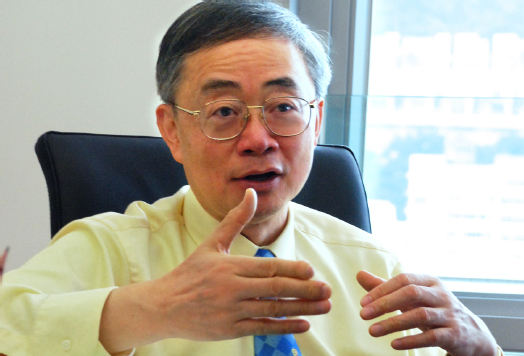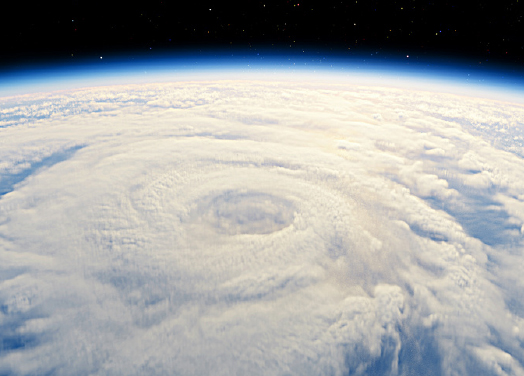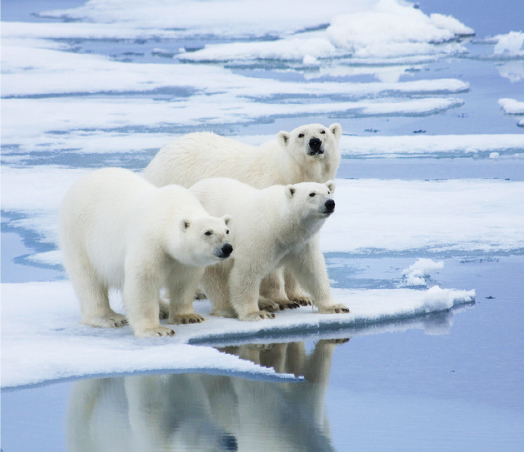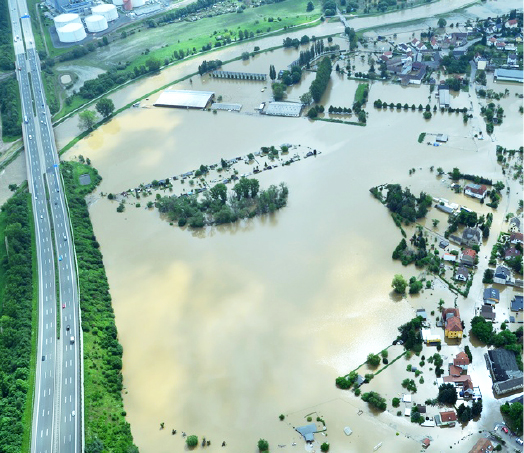
Prof. Gabriel Lau on Climate Change
1. You were the lead author of the Fifth Assessment Report (AR5) of the Intergovernmental Panel on Climate Change (IPCC). Could you tell us what the highlights of the AR5 are?
I was involved in the first working group which assessed the physical scientific aspects of climate change and published its report in September 2013 . The second and third groups will evaluate the vulnerability of socio-economic and natural systems to climate change, and examine the options for mitigating climate change. Their reports are due out in spring 2014.
The AR5 has several new features. We examined in greater detail the changes in temperatures, rainfall, glaciers and ice sheets, and sea level through observational records and simulations based on climate models. We also assessed the regional impact of climate change, not only the global impact, such as how the monsoon circulation has changed in various parts of China. The report has a new appendix with an atlas dividing the world into some 20 regions and providing the respective climate projections for each.
One of the challenges was evaluating the role of black carbon as an aerosol species. We all know that greenhouse gases raise air temperature. On the other hand, most of the aerosols, which are minute particulate matter suspended in the atmosphere, have a cooling effect as they reflect sunlight back to space. However, one type of aerosol called black carbon that's caused by coal burning, absorbs sunlight, and therefore heats up the atmosphere. When considering changes in temperature, we have to take all these competing effects into consideration.
2. For those who don't think climate change is pressing or urgent, what would you tell them?
We all buy insurance to manage risk. The same applies to climate change. You may not be hit by a car next month, and yet you still buy autoinsurance. If years of scientific research indicate that the probability of something happening is 90% or 95%, wouldn’t you also do something about it?

After AR5, we found Earth has undergone huge and obvious changes in the last 100 years, as indicated by temperature rises, ocean acidification, shrinking of ice sheets, thanks to the availability of more data resources which helped us to uncover detailed information. That is why we used much stronger language to describe the situation—words like ‘equivocal’ and ‘extremely likely’.

3. What are some of the most urgent issues?
In some climate scenarios, it is likely that the the Arctic Ocean will become ice-free in 2050 and animals like the polar bear will lose their habitat.
Rises in air and sea temperatures will affect the pathway, strength and frequency of hurricanes, and rainfall distribution. Some places will be affected by drought, others flooding, which has serious implications for agriculture. We anticipate the global sea level will rise by half to three-quarters of a meter by 2100. This will pose serious problems for some low-lying cities and countries, while likelihood of flooding will increase for others.
The waters of Earth are becoming more acidic as carbon dioxide released by humans into the atmosphere dissolves into oceans, rivers and lakes. This leads to the formation of carbonic acid which has a negative impact on marine life.
The heat waves affecting Europe, the Americas, and East Asia will increase significantly in duration and frequency throughout the 21st century.
4. Scientists are saying climate change is the most pressing issue in our time, but political actions are not in line with what science is saying. What do you have to say about that?
Evidence of long-term climate change is not always physically visible. Politicians are concerned with much shorter time scales. They tend to focus on tasks at hand. But governments should have long-term vision; they should be worried about climate change. We need to educate the next generation—let them know that climate change is not just for irrational radicals, but a phenomenon backed up by solid and objective scientific research. Politics are ultimately about people. If people change their mindsets and behaviours, politicians will listen.
I’m worried that conflict between countries will result from competition for natural resources as climate change continues. For instance, there’s potential for conflict in the Arctic over oil/gas exploitation rights and transportation routes. We also need to ponder ethical questions, such as if an affluent country has a much higher coal-fired power capacity than its poor neighbour, is it fair to ask them both to commit to the same carbon reduction target? Should we compensate countries already experiencing temperature rises? Should we extend the Declaration of Human Rights (Helsinki, 1964) to include the rights of trees, birds, fish—our fellow creatures who cannot speak for themselves?

5. How can action at city and personal levels make a difference, say changes in travel/transport patterns or other lifestyle aspects?
We are living in a global village. We can’t just ‘sweep the snow on our doorstep’, as the saying goes. Carbon remains in the atmosphere for centuries. We should start from our own community whether we’re workers, housewives, students. We could eat less meat because the raising and transport of livestock use a lot of energy. If we have to drive, we should try to accomplish more on one trip. These are but a few things we could do.
6. How can Hong Kong contribute to the combat against climate problems? How best can CUHK members help to do the same?
The Hong Kong government will publish a policy paper on energy production in December 2013, in which it will reconsider its current fuel mix for energy generation (about 50% coal, 25% natural gas, and 25% nuclear energy) and whether it should tap into sources of renewable energy.

The University strives to save energy and go green whenever possible. CUHK tells its students that whatever they do will have an impact on the environment. In terms of new developments, the Jockey Club Museum of Climate Change will open at the Institute of Environment, Energy and Sustainability (IEES) in December, which will explain about climate change to secondary school students and the general public. The Jockey Club-sponsored GAIA Initiative at IEES has conducted carbon audits for 28 primary and secondary schools, as well as eight NGOs. And being an academic institution, IEES will also team up researchers from the University’s different disciplines, say, urban studies, architecture, economics, energy engineering, in the hope of bringing about cross-disciplinary research on the subject.



